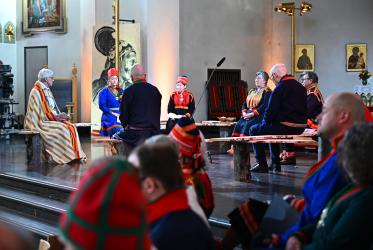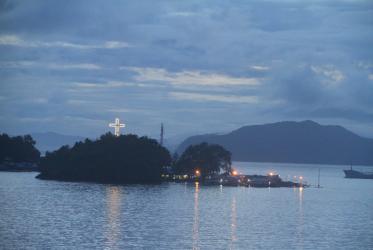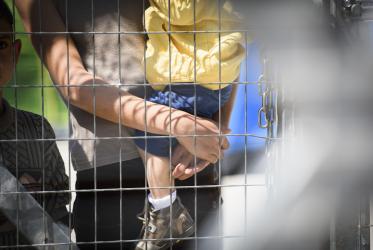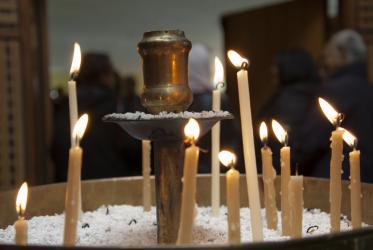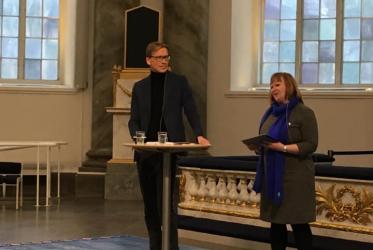Displaying 1 - 20 of 108
27 October 2022
Church of Sweden publicly apologises for abuse of Sámi people
26 November 2021
In a COVID-stricken world, “everyone is important”
23 October 2020
Nordic churches: “take our human responsibility”
12 March 2020
Churches should use their voice on climate change
26 February 2020
CCIA meets in Brisbane with focus on Pacific regional priorities
19 February 2020
Eco-School promotes blue communities, green churches
19 November 2019
The cry of the Papuans in Indonesia
14 November 2019
WCC Eco-School begins in Thailand
07 November 2019
“Economy of life” lifted up at special school in Indonesia
22 August 2019
Ecumenism is a sense of belonging
08 February 2019
All pilgrim routes lead to COP24
11 December 2018
